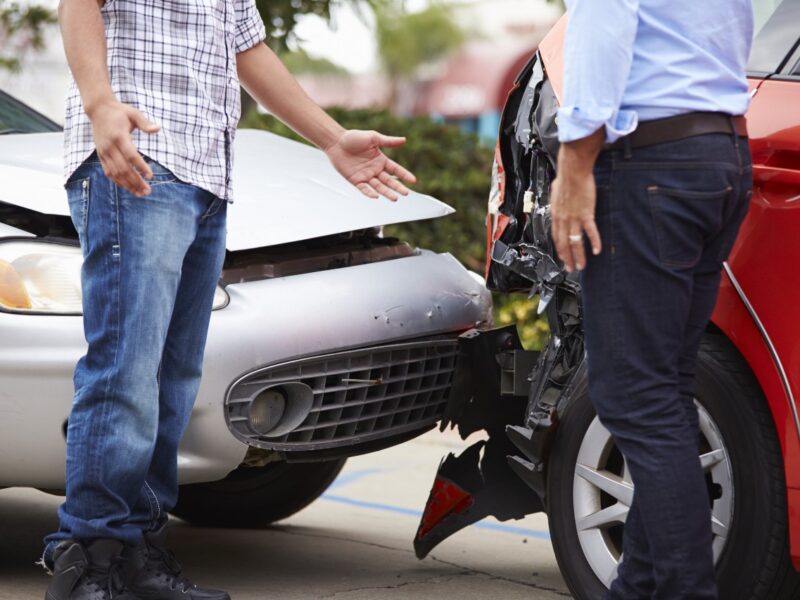How to Handle a Not at Fault Car Accident Claim
Getting into a car accident is stressful enough. But when the crash wasn’t your fault, the situation can feel confusing and unfair. You may be dealing with pain, vehicle damage, mounting medical bills, insurance calls, and missed work, none of which you caused.
Knowing exactly what steps to take can protect your health, strengthen your claim, and help you recover full compensation. This guide walks you through what to do after a car accident that wasn’t your fault, with friendly yet authoritative guidance from The Hassell Law Group, an award-winning San Francisco Bay Area personal injury law firm with decades of experience helping injured people obtain life-changing case results.
Whether your accident happened on I-280, the Bay Bridge, Highway 101, I-80, El Camino Real, the Richmond Parkway, or a local street anywhere in Alameda, Contra Costa, San Mateo, Santa Clara, Marin, Napa, or Solano counties-these are the steps that protect you.
1. Make Sure You’re Safe and Check for Injuries
After a collision, your safety comes first. Move to a safe location if possible, such as the shoulder of the road or a nearby parking area. If anyone is injured, call 911 immediately.
Even if your injuries may at first seem minor under the shock of what happened, don’t assume everything is fine. Soft-tissue injuries, concussions, and internal injuries often develop or worsen hours or days later. Always prioritize your health. Get in and get medically evaluated right away or as soon after as possible.
2. Call the Police — Even for “Minor” Accidents
Many people skip calling the police when a crash seems minor or the other driver is apologetic. This is a mistake.
Always call the police after a collision that wasn’t your fault.
A police report provides an official record of:
- What happened
- Who was involved
- Witness statements
- Road conditions
- Whether the other driver admitted fault
- Insurance information
- Any citations issued
- Accident investigation by police and their opinion of who was at fault
Make sure when you call 911 to tell them you were injured, if you deny injury the police will not come to the scene and will not make a report. It’s in your best interest that police come to the scene, you get checked out, and they make a report of the accident.
Insurance companies place significant weight on police reports. If the other driver later changes their story (which happens often), the police report can protect your claim.
3. Exchange Information With the Other Driver
Gather the following from the other driver:
- Full name
- Phone number
- Address
- Driver’s license number
- License plate number
- Insurance company and policy number
Never say anything that could be interpreted as taking blame. Even simple comments like “I didn’t see you” can be used against you by insurers later.
4. Document the Accident Scene in Detail
Your cell phone is one of your strongest tools after a crash. Use it to capture as much evidence as possible:
- Photos of all vehicles involved
- Damage to your car and theirs from multiple angles
- The accident scene and area where the crash occurred
- Skid marks, debris, traffic signals, or signage
- Weather and lighting conditions
- The other driver’s license plate
- Any visible injuries you or your passengers have
Also look for:
- Witnesses (obtain name and phone number)
- Nearby businesses or homes with security cameras
- Vehicles with dashcams
Video and photo evidence are extremely useful and will help strengthen your claim and can help prevent the insurer from disputing fault or your injuries later.
5. Get Medical Care as Soon as Possible
Many injury symptoms don’t appear right away. Your body releases adrenaline after a crash, which can temporarily mask pain and injury.
Common delayed-onset injuries include:
- Whiplash
- Concussions
- Shoulder and back injuries
- Soft-tissue strains and sprains
- Bruising and swelling
- Knee and wrist injuries
- Internal bleeding
Seeing a doctor right after an accident protects both your health and your claim. Medical records establish an extremely important link between the crash and your symptoms and injuries-something insurance companies often try to challenge. If you cannot get seen right away, get seen and evaluated as soon as possible after a crash.
If you don’t seek care, the insurance adjuster may argue:
“You weren’t really hurt.”
or
“Your injuries were not serious enough to require medical care”
“Your injuries didn’t come from the accident.”
Early medical treatment shuts down these arguments.
6. Notify Your Insurance Company
Even when the accident wasn’t your fault, you must inform your insurance company. This doesn’t mean you’re filing a claim against your own policy- only that you’re reporting the crash as you are required to do under most auto insurance policies.
Be factual and brief. Avoid giving long statements, speculating, or discussing fault.
If the at-fault driver’s insurer contacts you, do not:
- Give a recorded statement
- Sign medical authorizations
- Sign other documents
- Answer detailed questions
- Discuss your injuries or treatment
Insurance adjusters are trained to minimize payouts. Let an experienced personal injury attorney handle communications on your behalf.
7. Keep All Evidence and Medical Records Organized
After a not-your-fault accident, documentation is everything. Keep any documentation related to the crash:
- Medical records and discharge summaries
- Doctor notes
- Medical bills
- Receipts for medication or copays
- Vehicle repair estimates
- Tow receipts
- Car rental invoices
- Proof of missed work
- Notes or a journal detailing your pain and symptoms
These records form the backbone of your injury claim.
8. Follow Your Treatment Plan
Insurance companies look for reasons to reduce or deny claims. If you skip appointments, ignore medical advice, or delay treatment, they may argue that:
- You weren’t seriously hurt
- You weren’t injured enough to need medical care
- You did not follow up after initial medical care because you were not really injured
- You didn’t listen to your doctor’s advice and that’s why you are not recovered
- You worsened your own injuries
- Your recovery costs should be less
Getting any and all injuries and symptoms evaluated and worked-up by a medical provider with diagnostic imaging soon after an accident is very important. Following your treatment plan as recommended by your providers will show a clear, continuous, and consistent effort to treat the injuries and recover from them. Moreover, such treatment will document the injuries and your symptoms which is an important part of your claim.
9. Don’t Negotiate with the Insurance Company Alone
When fault seems obvious, many people assume the insurer will simply “do the right thing.” Unfortunately, that’s not how the process works.
Insurance companies often:
- Delay claims
- Try to blame you for the crash
- Question your injuries
- Offer lowball settlements
- Pressure you to settle before you know the full extent of your injuries
Having an experienced car accident attorney levels the playing field-even in cases where you were 100% not at fault. We protect you from unfair insurance company tactics used to minimize your payout.
10. Speak With a Bay Area Personal Injury Attorney as Soon as Possible
A skilled personal injury attorney can:
- Protect you from insurance company tactics
- Prove liability
- Determine the true value of your damages and case
- Handle all insurance companies, paperwork and negotiations
- Help you get medical treatment
- Fight for full compensation
- File a lawsuit if necessary
When The Hassell Law Group handles your case, you’re backed by a legal team with over 90 years of experience, award-winning case results, and a reputation for achieving exceptional outcomes for injured people across the Bay Area.
Most importantly – you pay nothing upfront. The firm works on a contingency fee basis, meaning you only pay if we win your case.
11. What You May Be Entitled to After a Not-Your-Fault Accident
Depending on your situation, you may recover compensation for:
- Medical bills
- Chiropractic care and physical therapy
- Future medical treatment
- Lost wages
- Loss of earning capacity
- Pain and suffering
- Emotional distress
- Property damage
- Car rental expenses
Our attorneys will evaluate every aspect of your damages claim to ensure nothing is missed.
12. Step-by-Step Checklist: What to Do Immediately After the Crash
Here is a quick breakdown you can follow after a collision:
- Get to safety.
- Check for injuries, call 911 and advise of injuries.
- Contact the police and request a report.
- Exchange information with the driver.
- Take photos and videos of everything.
- Speak to witnesses and get their contact information.
- Seek medical attention as soon as possible.
- Notify your insurance company.
- Keep all documentation and receipts.
- Contact an experienced personal injury attorney.
This guide helps you take control in a difficult moment and avoid costly mistakes that can weaken your claim.
Final Thoughts: You Didn’t Cause the Accident – You Shouldn’t Carry the Burden
A car accident that wasn’t your fault can disrupt your life in an instant. But you don’t have to navigate the process alone. The right attorney can protect your rights, handle the insurance company stress, and fight for the outcome you deserve.
If you or someone you love was injured in a car accident anywhere in the San Francisco Bay Area, The Hassell Law Group is ready to help. Our award-winning attorneys have recovered hundreds of millions of dollars for clients and are known for exceptional results, compassionate advocacy, and relentless dedication.
Call Us Today- We Can Help
Contact The Hassell Law Group today at (415) 334-4111 for a free, no-obligation consultation.
Call now and get the legal help you need to move forward with confidence.
The general information provided on this website should not be considered legal advice and does not constitute legal advice. For legal advice, you should consult directly with an attorney. If you contact us by telephone, email, letter, or by contact form submission through this website, please note that such communication does not create or constitute an attorney-client relationship. We cannot act as your attorney until we are hired as your attorney by a formal written agreement.


 How Much Can Someone Sue For In A California Car Accident?
How Much Can Someone Sue For In A California Car Accident?